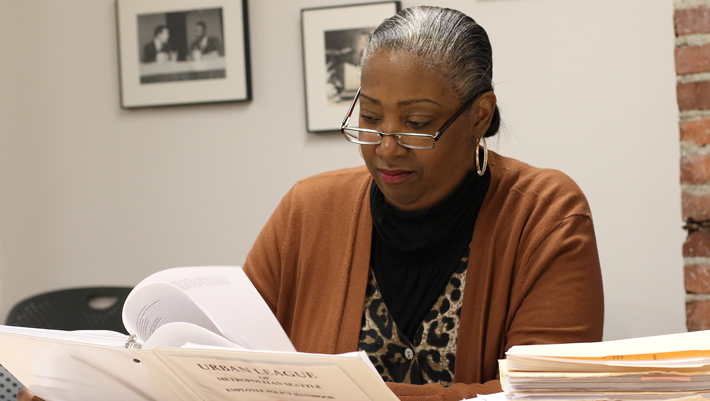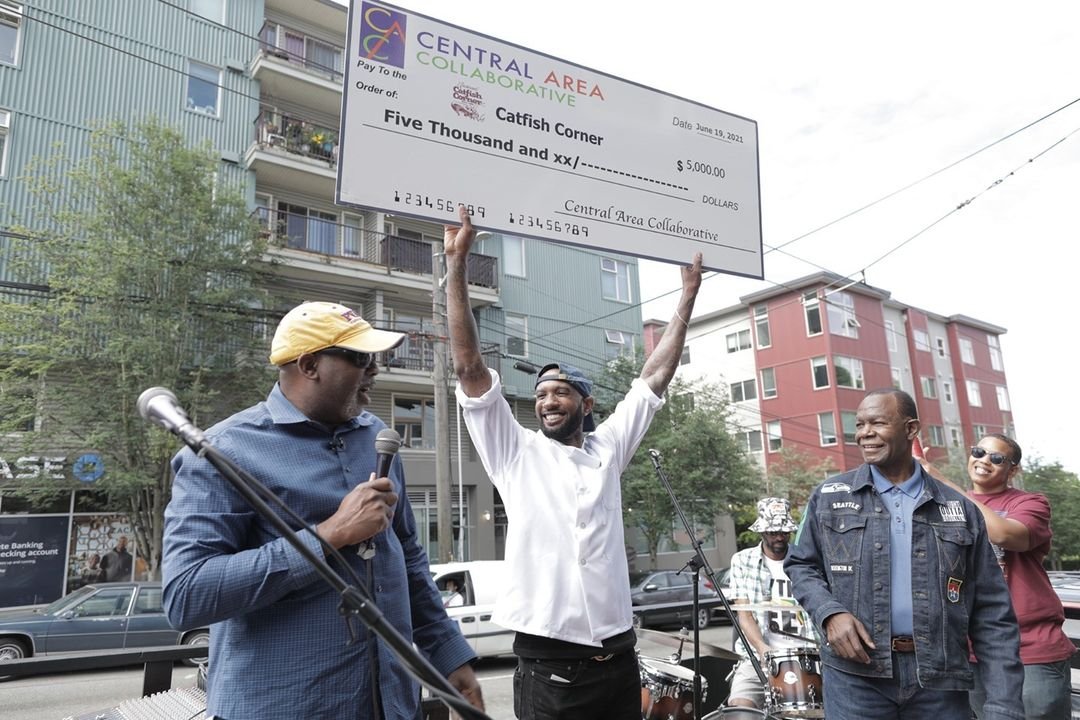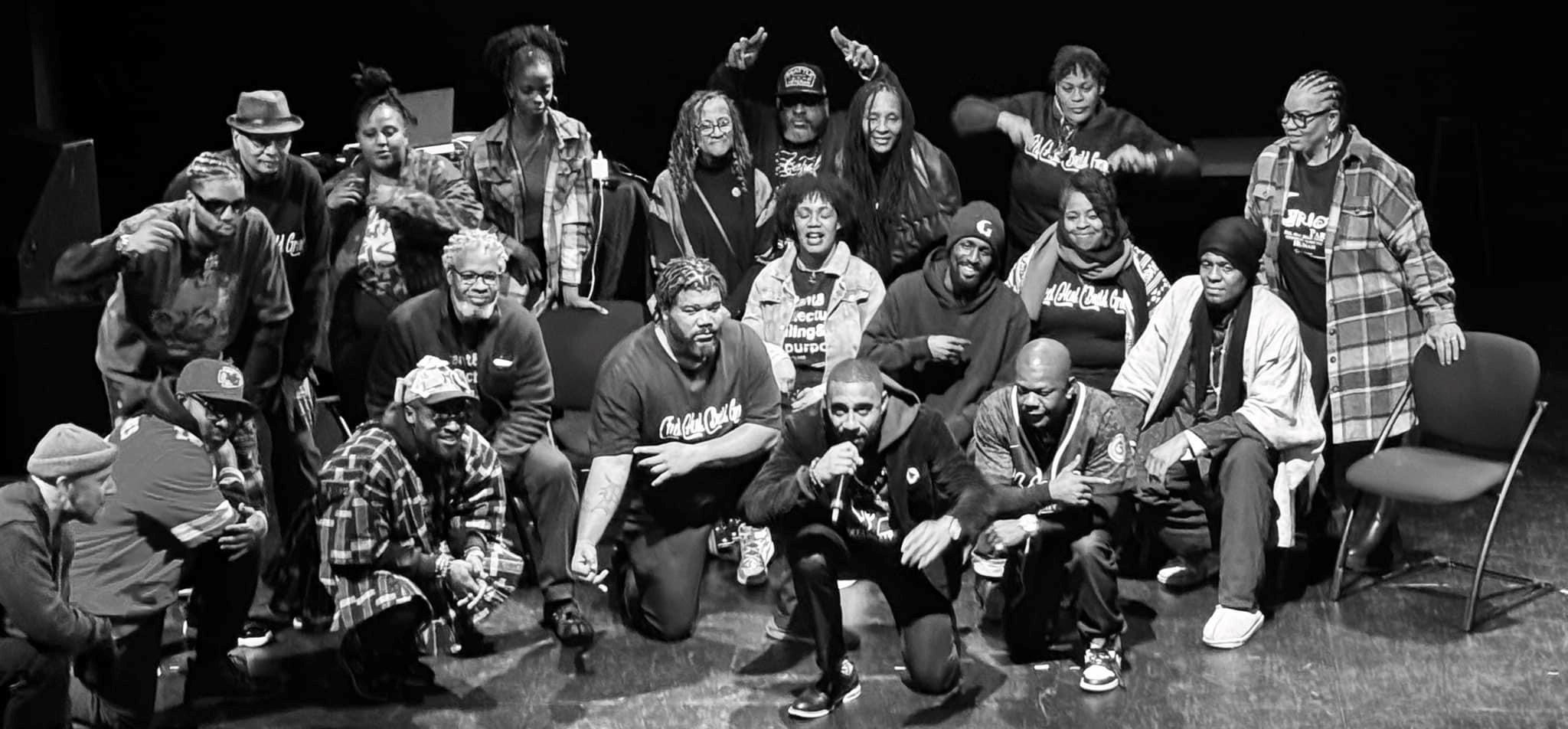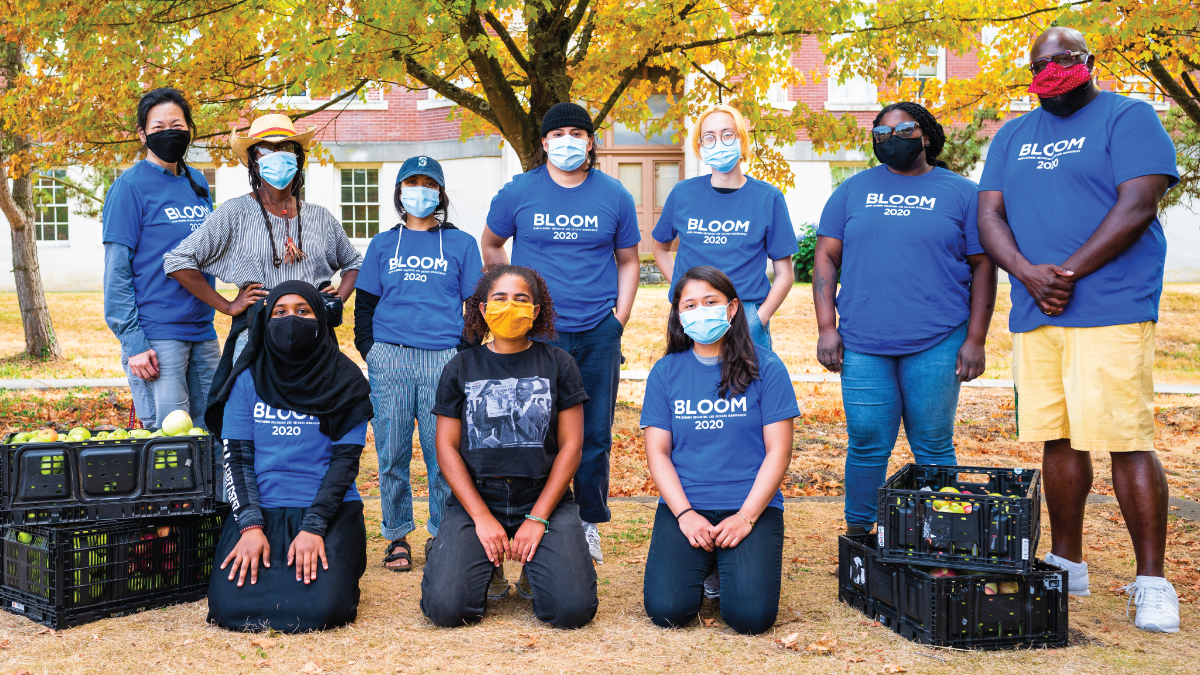 2020 BLOOM Food Justice participants at Jimi Hendrix Park
2020 BLOOM Food Justice participants at Jimi Hendrix Park Over the summer, Seattle Parks and Recreation’s Urban Food Systems partnered with the Seattle Public Library to co-create BLOOM (Beginning Leadership for Organizing and Orchard Management), a college level, food and racial justice fellowship designed to create space for young adults to imagine solutions to food security challenges occurring during the pandemic.
The COVID-19 pandemic has exacerbated many racial disparities in our society, particularly around food security. Although the percentage of families who are considered food insecure has surged across all demographics, data collected by the Census Bureau indicates Black, Indigenous, People of Color (BIPOC) communities have struggled at higher rates to put food on the table during the pandemic.
“COVID is a vivid equity lesson. As family caregivers are taxed by losing jobs or having children/youth/young adults unable to go to school, we see ways to be creative problem solvers,” said Davida Ingram, Public Engagement Public Programs Manager at the Seattle Public Library. “One of the most important activities was simply listening to young, emerging civic leaders on what tools they might want to empower themselves and their communities during a time of food insecurity.”
The two-week BLOOM program engaged a diverse group of young BIPOC adults in the Seattle area interested in food sovereignty, social justice, health, and wellness in a mix of virtual discussions and in-the-field learning opportunities.
The online sessions featured local BIPOC food justice leaders and educators from various organizations in the area including City Fruit, Black Farmers Collective, the University of Washington and more. During these lessons, community leaders shared the ways they are fighting systemic oppression through urban agriculture and explored how racism and social injustice contribute not only to food scarcity, but also to housing instability, overincarceration, and other prevalent social justice issues.
“I think as Black, Indigenous, People of Color we have been separated from our intimacy with the land. I think food justice is about restoring that connection and thus healing ourselves and healing the land and healing one another.”
– Cara Nguyen, BLOOM participant
The BLOOM participants had a chance to get their hands a little dirty helping transplant vegetable starts, tending garden beds, and learning about the Pacific Northwest growing zone at Wa Na Wari Teaching Garden and Nurturing Roots. Of course, no Seattle urban agriculture curriculum would be complete without delving into the fruit orchard history of the city. The group learned about orchard management at Amy Yee Orchard and picked over 300 pounds of apples that they pressed into cider and served at a grassroots BIPOC healing event at Jimi Hendrix Park.
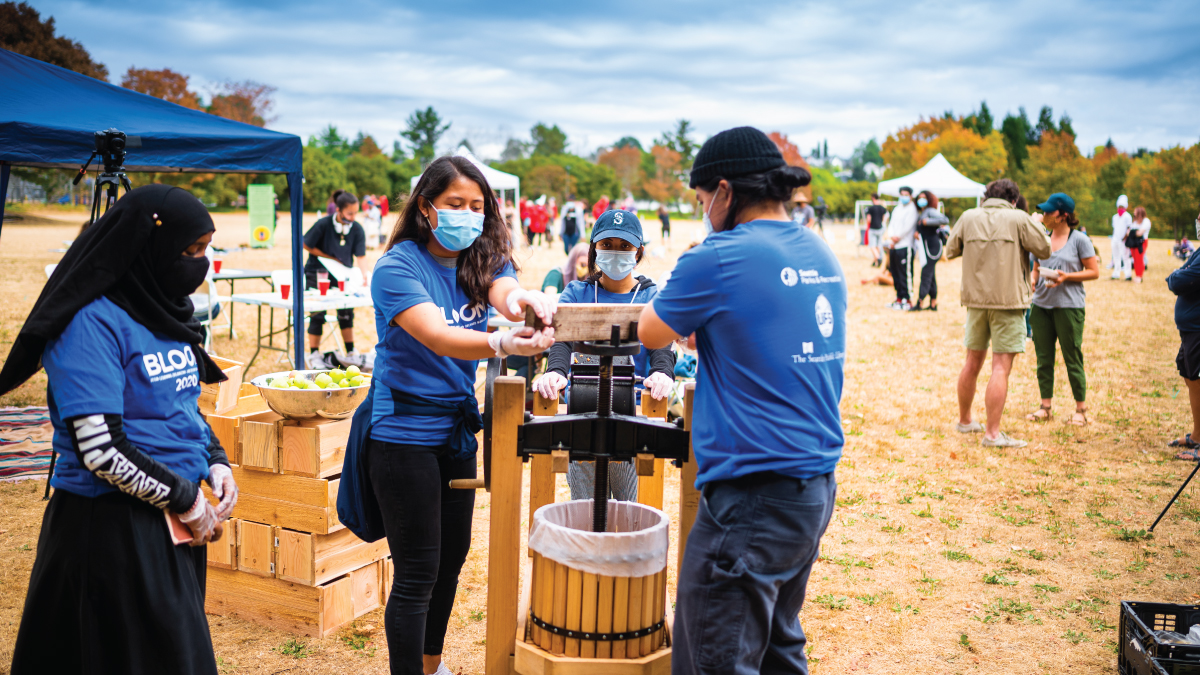
In addition to connecting with community leaders, the program also provided an opportunity for the participants to forge powerful relationships with a group of likeminded peers with diverse backgrounds and experiences.
“The most memorable part of BLOOM 2020 was meeting other youth like me who are dedicated to building community around this idea of food justice, around loving each other and loving our food and loving the land,” Cara says. “These are the kinds of connections I want to keep with me in moving forward in building a world I want to see”
Although BLOOM was developed in response to the pandemic, the roots of racial injustice in our city and society run much deeper than COVID-19. With so many vibrant and inspiring food justice leaders calling Seattle home, program leaders hope to continue investing in the well-being and education of young civic leaders. Plans to continue BLOOM and expand programs focused on mentorship and access to opportunity for the young BIPOC community are in progress.
“If the right resources are available, we would like to continue doing this community-led and community-centered food justice and food sovereignty work at the Library,” Davida says. “I am hoping the city can do its part in centering BIPOC urban farmers and acknowledging the life changing and community loving work they do. They are feeding peoples’ bodies, spirits and souls.”
The City of Seattle would like to thank the following community leaders and content experts for sharing their work and experiences during BLOOM’s virtual learning sessions:
- Nyema Clark, Nurturing Roots
- Emily Katz, City Fruit
- Melanie Malone, University of Washington
- Nathanael Mengist, Flowerboi Facilitations
- Nate Moxley, Seattle Department of Neighborhoods
- Pah-tu Pitt, Native Kut
- Hannah Wilson, Black Farmers Collective
- Isabel Carrera Zamanillo, University of Washington
BLOOM is a program of Seattle Together, a collaboration between City of Seattle departments and local communities to foster feelings of belonging, connection, and joy in Seattle. Seattle Together centers and supports Black, Indigenous, and people of color (BIPOC) communities in building a future Seattle where they feel connected, rooted, recognized, prosperous, and safe.
